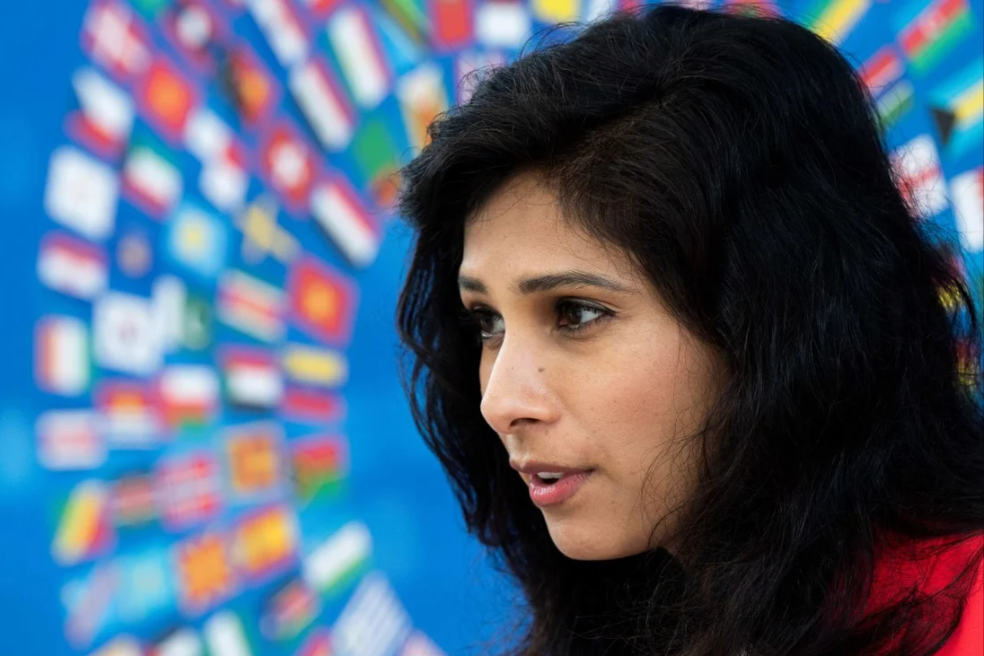Gu Bin is associate law professor at Beijing Foreign Studies University, author of “The Law and Governance of the Asian Infrastructure Investment Bank” and a China Forum Expert
Amid the war in Ukraine launched by Russia, the United States is launching an invisible war against multilateralism within major international economic organisations, forcing them to take political sides. Its actions put the international character of those organisations at risk, trampling their charters and the international rule of law.
At the International Monetary Fund, the US, Britain and Canada moved to suspend the ceremonial role of dean, held by Russian representative Aleksei Mozhin. This successfully served as a token punishment of Russia, but more importantly risks jeopardising the integrity of the organisation.
It may also have served as revenge against Mozhin for his non-cooperation last year when IMF managing director Kristalina Georgieva was accused of manipulating data on behalf of China during her time at the World Bank.
The US has sought to strip Russia of the opportunity to convert its US$17 billion in special drawing rights – a form of reserve asset issued by the IMF – to hard currencies, a legitimate right of any IMF member state under the organisation’s charter.

Gita Gopinath, first deputy managing director of the International Monetary Fund, speaks outside the institution’s headquarters in Washington, DC, on October 13, 2020. International organisations have exhibited nuanced differences in their statements on the war in Ukraine. The IMF vowed to support Ukraine on the financing and policy fronts. Photo: AFP
Washington has also led a sustained push to remove “most-favoured nation” status for Russia at the World Trade Organization, the bedrock of the world trading system. It has done so by citing the WTO’s national security clause, which is difficult to prove and applies only when members’ own national security is threatened.
Some in the US Congress have even proposed moves to suspend Russia’s WTO membership. This might not be lawful, as the WTO rules appear silent on membership suspension.
International organisations have exhibited nuanced differences in their statements on the war and responses to attempts to get them to take sides. The IMF and the World Bank both vowed to “support Ukraine on the financing and policy fronts”.
WTO director general Ngozi Okonjo-Iweala, whose organisation has its headquarters in Geneva, Switzerland, has expressed concern about the trade implications of the conflict. The Asian Infrastructure Investment Bank (AIIB) has taken a neutral stance.
The charters of these organisations require that only economic considerations be relevant to their decisions. However, World Bank Group president David Malpass went beyond this in a phone call with Ukrainian President Volodymyr Zelensky, expressing admiration of his and his country’s heroism.
Each country has an obligation to respect the international character of officials and other staff in global organisations and refrain from meddling as they carry out their duties. However, the US has expelled 12 diplomats from the Russian mission to the United Nations over allegations they were engaged in espionage.
This is not the first time the US has chosen to break with multilateralism. The administration of former president Donald Trump took a fervent approach in retreating from multilateralism, withdrawing or threatening to withdraw from several international treaties and organisations.
This time, America is going to great lengths to try to isolate Russia. But multilateralism is again at risk, and champions of the principle must rise up to defend it.
Multilateralism’s path has not been smooth for the best part of the past two decades. The Bretton Woods institutions have, for a long time, been losing relevancy and legitimacy as the US continues to delay much-needed reforms in governance and representation.
For example, negotiations on a new quota formula, to increase the representation of emerging economies in the IMF, have been held up for more than a decade with fruitless talk. China’s 6 per cent shareholding in the World Bank is fundamentally misaligned and should be doubled at the very least.
The US approach of employing delaying tactics has forced China to embark on a new path, by proposing the Belt and Road Initiative and the AIIB in 2013 and the Multilateral Cooperation Centre for Development Finance in 2017. The Chinese approach to multilateralism takes account of the relationship between heritage and innovation, with respect to American multilateralism.
Specifically, Chinese multilateralism is built on American multilateralism; that is, it is rules-based and respects international best practices. Meanwhile, it also embraces voluntarism, flexibility and incremental progress while emphasising consensus-building rather than hegemony in international organisations.
However, even the AIIB is dealing with the effects of Western sanctions against Russia and has had to adjust its operations accordingly, placing its three projects in Russia, and two in Belarus, on hold since March 3.
Iran is one of the founding members of the AIIB, but it has not been able to benefit from its investment in the bank or secure a single project for the country due to the risks involved to the bank because of Western sanctions on Tehran. The AIIB’s actions have been solely based on economic considerations, and conform with its charter, and it is not a case of the bank taking a political stance.
We certainly stand with the people of Ukraine, but we should also stand with the people of Russia. Efforts to boycott Russian businesses, sports teams and art are wrong.
Bullying those who disagree or refuse to take sides amounts to a violation of human rights. Amid the most dangerous crisis on the European continent since World War II, whose full consequences have yet to be seen, Europeans must be reminded that sanctions are truly a double-edged sword.
(Originally published on South China Morning Post on Mar. 28, 2022.)
